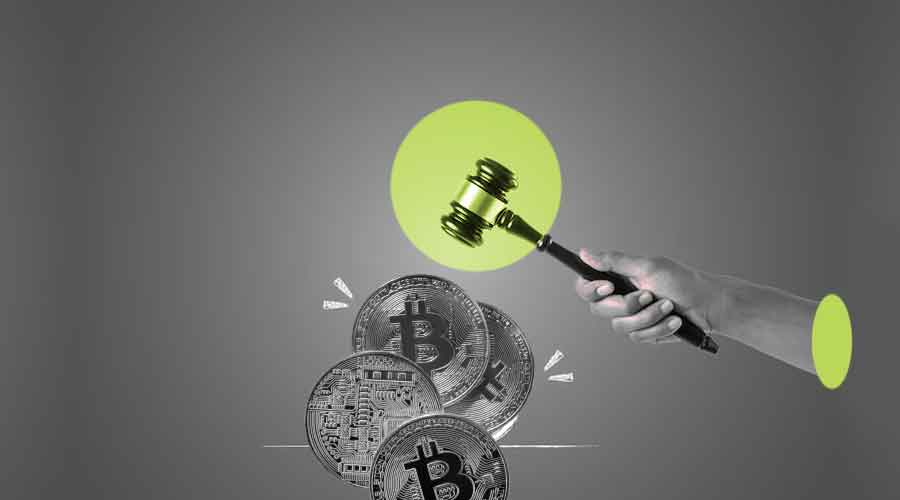How Do Crypto Lawsuits Influence Market Participants’ Regulations?
Important regulatory organizations are taking notice of the burgeoning popularity of cryptocurrencies. A number of regulatory issues are currently confronting a sector that fundamentally takes pleasure in its lack of control (decentralization).
Crypto Regulations Worldwide:
The European Union (EU) was among the first areas to enact substantial cryptocurrency rules, having introduced the Markets in Crypto-Assets (MiCA) Regulation. Greg Moritz, Alt-Tab Capital’s co-founder and CEO, stated: “The passage of MiCA contributed to stabilizing price levels for all digital assets as it brought legislative certainty to the market, which was lacking for digital assets in Europe. More importantly, it was thought to be a good model for market regulation in other areas.
Major cryptocurrency values dropped in May 2023, the month after MiCA was approved. Between the beginning and conclusion of the month, Bitcoin (BTC) fell by almost 5%, while BNB lost more than 7% of its value in the same timeframe. But not every significant cryptocurrency responds to governmental actions in the same manner. While XRP increased by 10.5%, Ether (ETH) had a 1.7% rise.
The United States (US) is likewise not afraid to sometimes introduce fresh regulation pronouncements. In the XRP v. US Securities and Exchange Commission (SEC) controversy, which just emerged, the SEC claimed that Ripple, the company that created the XRP currency, earned $1.3 billion in 2013 by selling investors XRP through an unregistered securities offering.
The SEC has also begun pursuing other significant participants in the digital asset market, such as Binance and Coinbase. To combat illicit bitcoin activities, the Biden Administration is adopting strict rules on cryptocurrencies in addition to the SEC.
The operation of bitcoin exchanges is prohibited in China. Cryptocurrencies are categorized as property in the interim. Exchanges operating in the United Kingdom (UK) must register with the UK Financial Conduct Authority (FCA).
When it comes to cryptocurrency regulation, some nations opt for a more stringent approach, while others choose a far more accommodating one. For instance, El Salvador accepts Bitcoin as legal money, while Lithuania has developed a welcoming regulatory environment.
How Can Regulations Affect Market?
Regulations may greatly affect how the general public views digital assets, which can have a substantial effect on their pricing. A decision that is in your favor will undoubtedly have a greater positive effect, and vice versa.
The verdict in the XRP v. SEC litigation, according to Moritz of Alt-Tab Capital, has had a “major impact on altcoin prices.” Furthermore, this has also caused Bitcoin’s market dominance to decline, pushing it below the 50% threshold. For instance, the price of XRP has increased during the trial, particularly when the SEC submitted a move for an interlocutory appeal. After dropping from $0.4863 on August 18, 2023, to $0.5162 on August 28, 2023, the token has gained more than 6%.
Dr. Shira Brezis, the CEO and co-founder of Redefine, went on to say that over regulatory, improperly applied, and ignorant regulations may all have a detrimental effect on future cryptocurrency values and the expansion of the sector. However, other financial developments may also have a significant impact on how cryptocurrencies perform in the present market. On August 25, 2023, the day before Federal Reserve Chair Jerome Powell’s address in Jackson Hole, Bitcoin dropped from $26,688 to $25,800.
The impact of local cryptocurrency rules on digital assets is contingent upon the size of the market in the nation of origin. According to Moritz, regulatory news from the US or China, for instance, frequently affects prices significantly since those two nations are among the biggest suppliers of capital for both individual and institutional investors.
According to Dr. Brezis, the Biden Administration and the EU’s increasing “openness to cryptocurrency regulation” may lead to the development of a more cooperative and international regulatory framework. “Such an approach would promote a vibrant, competitive, and innovation-friendly environment by making the rules of the game clear and consistent across borders,” the speaker stated.





